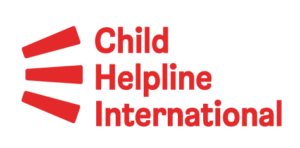16 Years of Our Harmonized Child Helpline Number in Europe
Today we celebrate 16 years of 116 111 – the harmonized child helpline number in the European Union. 116 111 is operational in 23 of the 27 member states of the EU, and in seven other European countries. The 2007 decision by the EC was the result of intense lobbying for the reservation of harmonized, easy-to-remember and toll-free numbers, both in the EU and across the wider European region, by the then still relatively young Child Helpline International network and our child rights partners (read more about the history of 116 111 here).
Every year, child helplines in Europe provide counselling to between 1 million and 1.5 million individual contacts. Over the years, mental health has been the main reason for children and young people making contact with child helplines, followed by concerns about violence, family relationships and peer relationships. In 2022, fear, anxiety, mood problems and suicidal thoughts accounted for over 60% of contacts relating to mental health. The main reasons for violence-related contacts included mental/emotional violence, bullying and physical violence (almost 70% of contacts) (data here).
It is clear that child helplines are an exceptionally important child and youth mental health service, and a key entry point to child protection systems. Child helplines are unique due to their accessibility to children; children can receive immediate support directly from child helplines without having to go through any form of assessment.
Across the world, child helplines are widely recognized as key services in protecting the rights of children. To mention a few, child helplines are included in the EU Strategy on the Rights of the Child (2021-2025), as part of the WeProtect Model National Response to protect children from sexual exploitation and abuse, and they are an integral part of the country and alternative reporting of the UN Convention on the Rights of the Child.
Despite this wide recognition of the importance of child helplines, too many of our members in Europe struggle with sustainable resources to operate to their full potential, respond to the changing communication landscape, sufficiently support children with specific communication needs (i.e. children with disabilities, children in migration) and respond to new forms of crises faced by children (such as war, pandemic and natural disasters). Therefore, we make the following calls to action:
National Governments:
- Child helplines must be fully resourced to operate in accordance with the Core Quality Standards for Child Helplines. National governments must support their national child helpline financially, and ensure funding is long-term and flexible in times of crisis.
- Additional funding must be made available for child helplines to further develop and respond to changes in the communication needs and preferences of children – for example via text-based services, in different languages for children in migration, and to cater for children with disabilities with specific communication needs.
EU-Agencies
- Child helplines must be specifically highlighted in child rights (and other) policy documents on an EU level as key implementing partners. Child helplines are often mentioned, but not prioritized.
- The EU must renew and strengthen its recommendation to member states that they provide resources for 116 111 child helplines to operate in accordance with established quality frameworks for child helplines.
Telecoms, ICTs and Online Platforms
- National regulatory authorities, telecoms and mobile operators should continue to work together with child helplines to ensure that the 116 111 number is free of charge for all children – even when they have a SIM card from another country, or do not have credit or internet.
- Online platforms used by children should partner with child helplines to explore collaborations and simplify direct reporting related to issues happening online.
Ronja Ulvfot
Regional Manager, Europe


